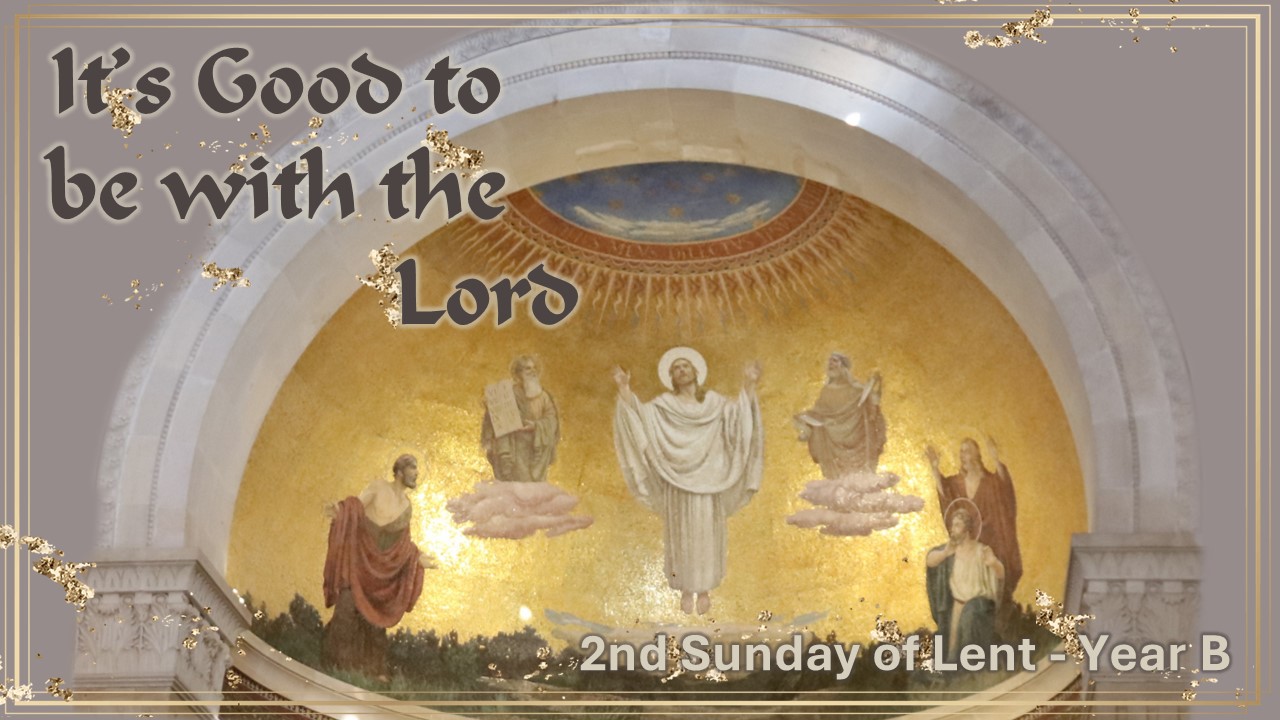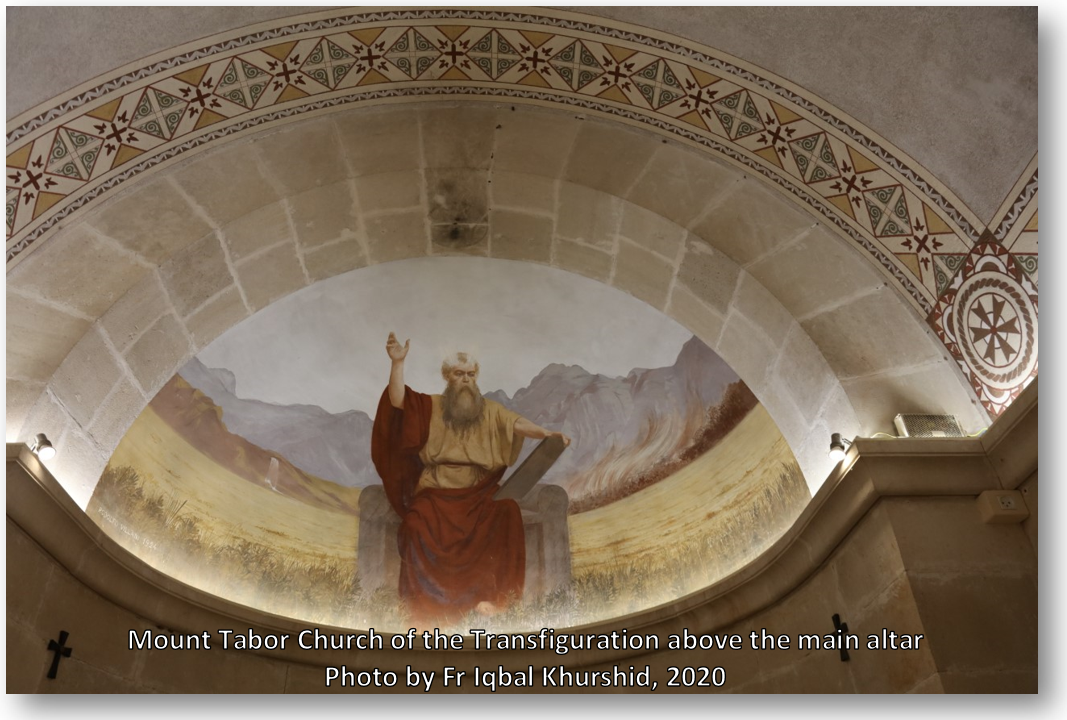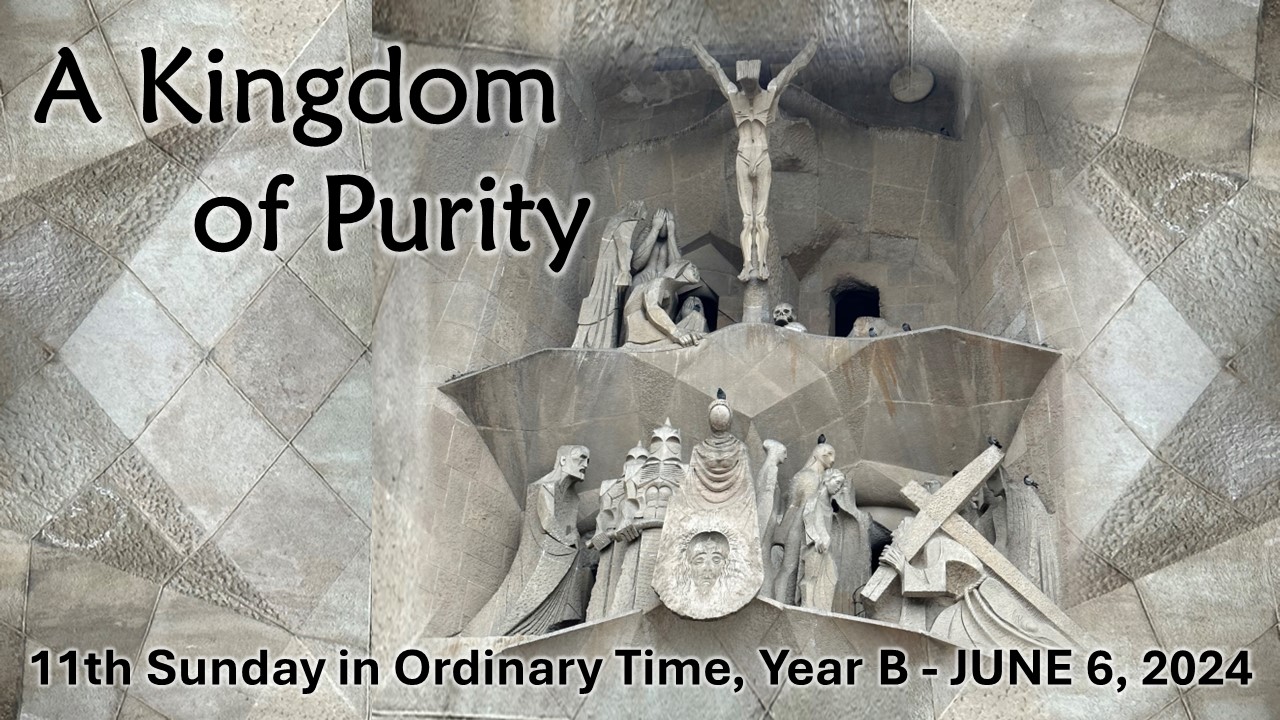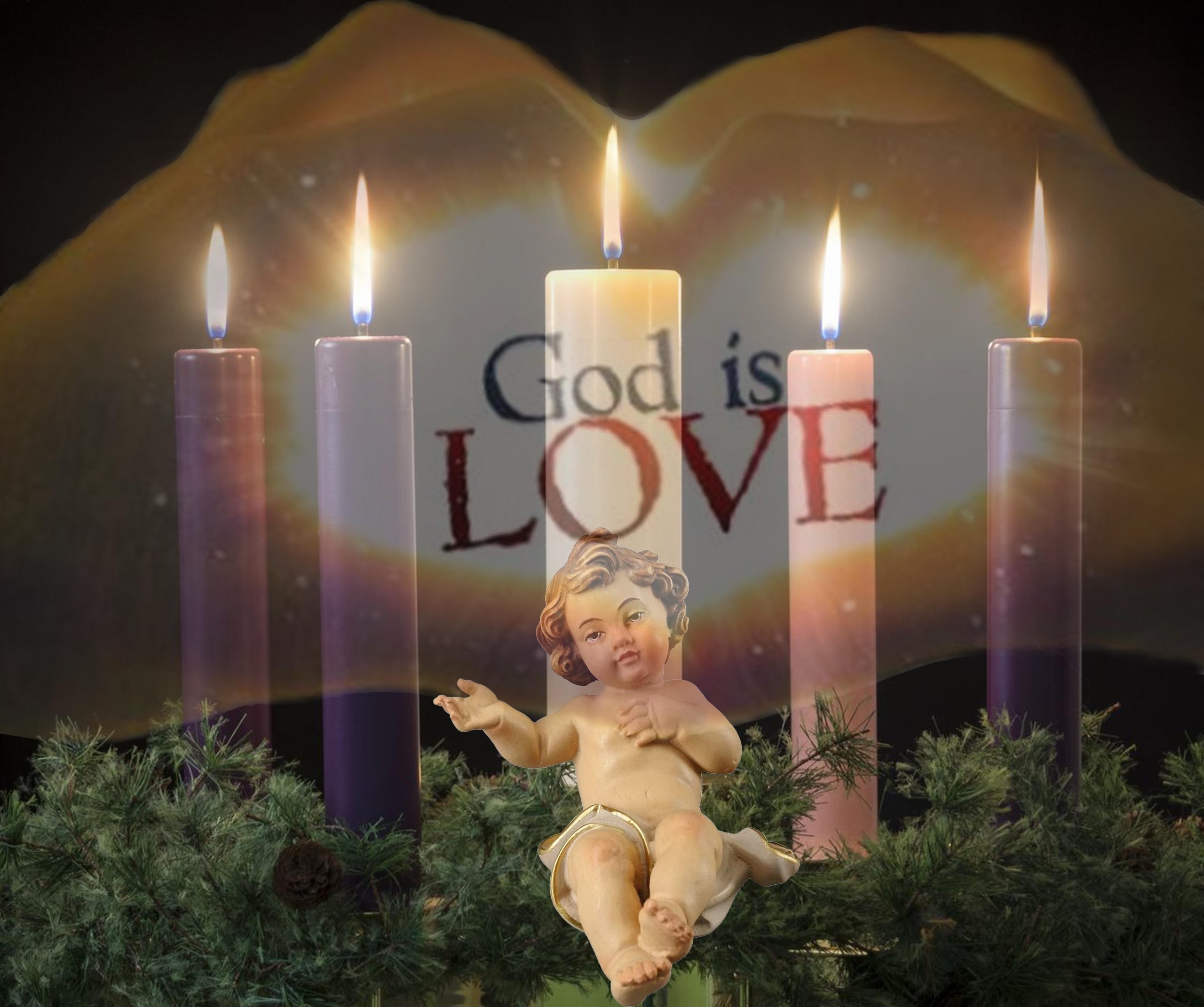
2nd Sunday of Lent – Year B ~ February 25, 2024
IT’S GOOD TO BE WITH THE LORD
Last Sunday we reflected on the covenant of God which he made with Noah and promised him that he will never destroy the earth again. In the Gospel we saw Jesus tempted by the devil, but he remained faithful and steadfast against the cunningness. After emptying himself in the wilderness and strengthened by his Father, he started his public ministry by these words “Time is fulfilled, repent and believe, for the kingdom of heaven is near”. What time is fulfilled? The time of God’s covenant made with Noah is fulfilled because through Jesus his Son, God is going to save the world and the Prophet Isaiah confirms it with these encouraging words: “Surely, he has borne our infirmities and carried our diseases; yet we accounted him stricken, struck down by God, and afflicted. He was wounded for our transgressions, crushed for our iniquities; upon him was the punishment that made us whole, and by his bruises we are healed. We like sheep have gone astray; we have all turned to our own way, and the Lord has laid on him the iniquity of us all. He was oppressed, and he was afflicted, yet he did not open his mouth; like a lamb that is led to the slaughter, and like a sheep that before its shearers is silent,
so he did not open his mouth” (53:4-7).
Today as we participate in the liturgy of 2nd Sunday of Lent, we are introduced to the most beautiful and powerful story of Transfiguration of the Lord. The scenario, companionship of disciples along with Moses & Elijah, setting up of the tents and above all the voice of the Father coming down from heaven proclaiming, “He is my beloved Son” makes us feel “IT’S GOOD TO BE WITH THE LORD”. Jesus brings three of His disciples up onto a mountain where Christ is transfigured before them: they saw the glory of God, the Divinity of Christ, which was hidden behind the humble appearance of a persecuted man. We say in the Nicene Creed that Jesus, is “God from God, light from light, true God from true God”, and that He is “…consubstantial with the Father,” but why do we say this? The main reason behind this, is to believe that Jesus “became flesh” but still he comes from God the Father.
Jesus is Lamb of God who takes away of the sins of the world. Though he suffered he was obedient even to the death and death on the cross as St. Paul writes to the Philippians. In obedience he gave himself up for us because he knew that his Father loves the world so much and wants to save it from the poison of sin and the slavery of the devil. A chaplain was ministering to a soldier in the hospital and said, “You have lost an arm in the great cause.” The soldier replied, “I didn’t lose it—I gave it.” Jesus did not lose His life either. He willingly gave it for us so we could be reconciled to God.
We are all aware of the meaning and definition of obedience and we read a lot about it. We teach about obedience to others and even ourselves learn to obey, although the word “OBEDIENCE” in our secular world is almost becoming extinct. People have drawn wrong conclusion of obedience; for example, for some people obeying means losing one’s self esteem or dignity and becoming subject to other. However today through the Sacred Scripture Reading we find another form of obedience and that is Sacrificial Obedience. What does it mean? It means to feel good to be with the Lord and listening to his voice who keep calling us “come, follow me”.
Let us walk with Abraham, Isaac, Moses, Elijah, Jesus and the disciples. In the First Reading we see the story of a father and son. Father receives his son in a very old age when there was no chance for him to have children and then a miracle takes place, and he receives a son. We can image the joy and happiness of the parents who are having their first child or a child after long years of their marriage. We can see the emotional attachment of the parents. Is it easy for the parents to let a child go away from the home or die? I would say absolutely no. I met a couple a few days ago who have two sons and started chatting with them. During the chat I asked the kids if they are attending any school, the oldest son said yes but for the younger one, the reply came from the mother “she would love to keep him closer to her as much as she could”. Is there anything wrong, absolutely not, because that’s the love of the parents and the mother in particular. In my own case, my parents had similar feelings because they wanted me to stay closer to them but my life as priest didn’t go with their wishes.
Despite emotional attachment, a serious and the toughest test is placed before Abraham “take your son and sacrifice him on the mountain”. Serious goosebumps. How in the world is it possible for a father to let his son who is the only son and who will continue his offspring. What would our reaction be in this kind of situation? But the reaction of Abraham is of pure obedience. He is ready to sacrifice his son because for him obedience is more important than the sacrifice. Even the son is part of his father’s obedience and wanted his father to carry out what he had decided to do. The outcome of the obedience in the Reading today; God promises to make the father of the multitude of nations and their offspring numerous as the stars of heaven and as the sand that is on the seashore. “What then are we to say was gained by Abraham, our ancestor according to the flesh? For if Abraham was justified by works, he has something to boast about, but not before God. For what does the scripture say? “Abraham believed God, and it was reckoned to him as righteousness.” (Romans 4:1-3). The author to the Letter to Hebrews explains the reward of Abraham in this way “When God made a promise to Abraham, because he had no one greater by whom to swear, he swore by himself, saying, “I will surely bless you and multiply you.” And thus Abraham, having patiently endured, obtained the promise” (6:13-15).
In the Second Reading St. Paul while writing to Romans, explains the purpose of Jesus’ sacrifice who died for us all and who is at the right hand of God, who indeed intercedes for us. If he died for us to unite with his Father then who can separate us from his love; “in all these things we are more than conquerors through him who loved us”. There is one requirement to remain united with him is obedience then we will have the crown of eternal glory “Be faithful unto death and I will give you the crown of eternal life/glory” St. John says in the Book of Revelation.
Six-year-old Dan decided one Saturday morning to fix his parents pancakes. He found a big bowl and spoon, pulled a chair to the counter, opened the cupboard, and pulled out the heavy flour canister, spilling it on the floor.
He scooped some of the flour into the bowl with his hands, mixed in most of a cup of milk and added some sugar, leaving a floury trail on the floor which by now had a few tracks left by his kitten.
Dan was covered with flour and getting frustrated. He wanted this to be something very good for Mom and Dad, but it was getting very bad.
He didn’t know what to do next, whether to put it all into the oven or on the stove, and he didn’t know how the stove worked! Suddenly, he saw his kitten licking from the bowl of mix and reached to push her away, knocking the egg carton to the floor. Frantically, he tried to clean up this monumental mess but slipped on the eggs, getting his pajamas wet and sticky.
Just then he saw Dad standing at the door. Big crocodile tears welled up in Dan’s eyes. All he’d wanted to do was something good, but he’d made a terrible mess. He was sure a scolding was coming, maybe even a spanking. But his father just watched him.
Then, walking through the mess, he picked up his crying son, hugged him and loved him, getting his own pajamas wet and sticky in the process and he said, “I love you son”.
That’s how God deals with us. We try to do something good in life, but it turns into a mess. Our marriage gets all sticky, we insult a friend, we can’t stand our job, or our health goes sour. Sometimes, we just stand there in tears because we can’t think of anything else to do. That’s when God picks us up and loves us and forgives us, even though some of our mess gets all over Him. Just because we might mess up, we can’t stop trying, for God, or for others. God always carries us in his arms and keep repeating “I love you.”
The Gospel Reading invites us to contemplate the Transfiguration of the Lord. Jesus just finished talking with his disciples about his suffering, death and resurrection and off course St. Peter didn’t like the idea of Jesus’s suffering and dying and he almost fights with the Lord. “This message led to crisis for Peter and the entire group of disciples, who rejected the idea that Jesus would be scorned by the leaders of the people and then put to death. Indeed, they were waiting for a powerful, strong, dominating Messiah, whereas Jesus presented himself as a humble and gentle servant of God, and servant of mankind, who would offer his life in sacrifice, passing by way of persecution, suffering and death. But how could one follow a Master and Messiah whose earthly existence was to end in that way? That is what they were thinking. And the answer came precisely from the Transfiguration” as Pope Francis reflects on the Gospel. Is Peter wrong to stop Jesus talking about his death? I think none of us like to hear from someone who is very near to us that he/she is going to death. What would be our first reaction? “Shut up” and stop talking about the death. I remember while to talking to my sisters about my dad, they told me that dad said he does not have much time to live and he will be soon gone to the Lord. And the reaction of my sisters was “no, don’t talk, you will be fine”.
Soon after the confrontation with St. Peter, Jesus takes Peter, James, and John, “and led them up a high mountain; and showed them his glory, the glory of the Son of God”. This may have made his disciples change their perspective of his suffering, death, and resurrection. “They saw him, as the Holy Father’s reflection, as he would be after the Passion: glorious”. The story does not end there but continues with very important personalities of the Old Testament: Prophet Moses & Prophet Elijah. These two prophets are persona Christi in many ways (please read about them). These two went to the mountain of the Lord to meet with God. Moses represents the Law and Prophet Elijah represents the Prophets. They are there to confirm what is written in the Law and Prophets about Jesus’ suffering, death, and resurrection. The event of Jesus transfiguring himself on the mountain enables us to better understand his Resurrection. In order to understand the Mystery of the Cross, it is necessary to know ahead of time that the One who suffers and who is glorified is not only a man, but is the Son of God who, with his love faithful to the end, saves us. In this way the Father renews his messianic declaration about the Son, which he had made previously on the bank of the River Jordan after his Baptism, exhorting: “listen to him”. The disciples are called to follow the Master with trust, with hope, notwithstanding his death; the divinity of Jesus must be made manifest precisely on the Cross, precisely in his dying “in that way”, so that here Mark the Evangelist places in the mouth of the centurion the profession of faith: “Truly this man was the Son of God!”.
These two prophets have prepared Jesus for the Sacrificial Obedience to the Father who loves him so much “this is my beloved Son with whom I am well pleased, listen to him”. This is the message the Father gives to the Apostles. Jesus’ message is preparing them by showing them his glory; the Father’s message is: “Listen to him”. There is no moment in life that cannot be fully lived by listening to Jesus. In beautiful moments, let us stop and listen to Jesus; in difficult moments, let us stop and listen to Jesus. This is the way. He will tell us what we have to do. Always. The apostles are taken up so much what they witness that they want to stay there even ready to prepare tents for them.
St. Gregory Palamas (1296-1359) concludes his reflection with these words “Let us, considering the Mystery of the Transfiguration of the Lord in accord with their teaching, strive to be illumined by this Light ourselves and encourage in ourselves love and striving towards the Unfading Glory and Beauty, purifying our spiritual eyes of worldly thoughts and refraining from perishable and quickly passing delights and beauty which darken the garb of the soul and lead to the fire of Gehenna and everlasting darkness”.
Who thinks and talks about their death, especially when they are young? I guess no one but Jesus does because he knows the purpose of his coming to the world because he wants to gather everyone as hens gather the chicks under their wings. In his obedience, after his transfiguration, he doesn’t go anywhere else but to Jerusalem where the events of human salvation are going to take place. His own people will betray him, arrest him, torture him, crucify him, and will deny him as well. However, his obedience will bring him to the point where he will say “if possible, let this cup pass away but not my will but your will be done”.
At the end I would like to leave all of you with these questions to contemplate while you read the story below. What are the times when I disobeyed the Lord? When did I really feel that I have obeyed the Lord and listened to him?
There was once a bridge which spanned a large river. During most of the day, the bridge sat with its length running up and down the river paralleled with the banks, allowing ships to pass through freely on both sides of the bridge. But at certain times each day, a train would come along, and the bridge would be turned sideways across the river, allowing a train to cross it. A switchman sat in a small shack on one side of the river where he operated the controls to turn the bridge and lock it into place as the train crossed. One evening as the switchman was waiting for the last train of the day to come, he looked off into the distance through the dimming twilight and caught sight of the train lights. He stepped to the control and waited until the train was within a prescribed distance when he was to turn the bridge. He turned the bridge into position, but, to his horror, he found the locking control did not work. If the bridge was not securely in position, it would wobble back and forth at the ends when the train came on to it, causing the train to jump the track and go crashing into the river. This would be a passenger train with many people aboard.
He left the bridge turned across the river, and hurried across the bridge to the other side of the river where there was a lever switch, he could hold to operate the lock manually. He would have to hold the lever back firmly as the train crossed. He could hear the rumble of the train now, and he took hold of the lever and leaned backward to apply his weight to it, locking the bridge. He kept applying the pressure to keep the mechanism locked. Many lives depended on this man’s strength.
Then, coming across the bridge from the direction of his control shack, he heard a sound that made his blood run cold. “Daddy, where are you?” His four-year-old son was crossing the bridge to look for him. His first impulse was to cry out to the child, “Run! Run!” But the train was too close; the tiny legs would never make it across the bridge in time. The man almost left his lever to run and snatch up his son and carry him to safety. But he realized that he could not get back to the lever. Either the people on the train or his little son must die. He took a moment to make his decision. The train sped safely and swiftly on its way, and no one aboard was even aware of the tiny broken body thrown mercilessly into the river by the onrushing train. Nor were they aware of the pitiful figure of the sobbing man, still clinging tightly to the locking lever long after the train had passed.
They did not see him walking home more slowly than he had ever walked: to tell his wife how their son had brutally died. Now if you comprehend the emotions which went through this man’s heart, you can begin to understand the feelings of our Father in Heaven when He sacrificed His Son to bridge the gap between us and eternal life. Can there be any wonder that He caused the earth to tremble and the skies to darken when His Son died? How does He feel when we speed along through life without giving a thought to what was done for us through Jesus Christ?
Do we feel good to be with Lord?
Other Sermons In This Series

6th Sunday of Easter Year C ~ May 22, 2022
May 20, 2022

11th Sunday in Ordinary Time, Year B – JUNE 6, 2024
June 14, 2024

4th Sunday of Advent Year A ~ December 18, 2022
December 16, 2022

